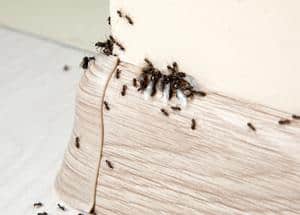You have definitely seen ants running around the street right under your feet, but have you ever asked yourself: “How do ants reproduce?”
It seems like a pretty easy question, although it can be hard to understand all of the details and interesting parts of this natural process.
What Is Their Secret? Ants Reproduction Guide
How are ants born? Well, as with every living thing, their reproduction cycle starts from the egg. Ant eggs are really small, almost see-through, and a queen of the colony can lay thousands of them at a time.
Usually, those eggs are fertilized by a sperm that the queen keeps in her special pouch after the first mating.
An ant colony can survive for years, regularly multiplying at a great speed. Ant giving birth is a fascinating process, and it is something you cannot spectate often. But how do ants lay eggs?
The queen uses the remaining sperms to inseminate her eggs, and after that, they come out of her ovipositor. The eggs are usually tended by the workers after they are laid.
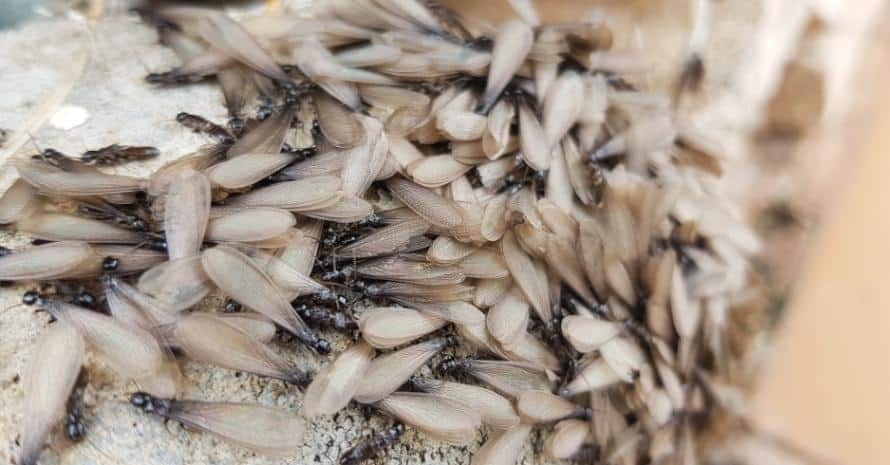
When the egg fully develops, emerges the larva. It has no legs and eyes, and it is fully dependent on adults. The workers feed the larvae for it to multiply in size and then grow into the next form of the ant.
The larva is cream-colored and sometimes can be much bigger than the workers that attend to it. After some time, it metamorphoses into a pupa. This is a resting phase, the pupa looks a lot like a full-grown ant, but its legs and antennae are folded against its body.
At first, it has white color, but gradually it darkens to brownish or black. Depending on species, pupa and larvae can differ in size and behavior, but all of the stages mentioned above are a vital part of ant reproduction.
In the end, pupae turn into newborn ants. The development into a mature ant takes some time, and after that, the ants can be assigned into three main casts:
- workers;
- queens;
- males.
Ant colony works like a clock, and each of its functions is always calculated to be productive for everyone in the anthill. The queen plays the main role in the colony, as she decides who each young ant develops into.
The unfertilized eggs turn into males who have wings, and when they fully grow, males leave the colony to go find a new queen to mate with. The process is more complicated when it comes to workers. They are females from the beginning, but they cannot reproduce.
Their reproductive system is affected by the hormones of the queen, so their ovaries are underdeveloped, and they cannot produce eggs. The workers are the main power of the colony. They look for food, protect the anthill, and tend to eggs and larvae.
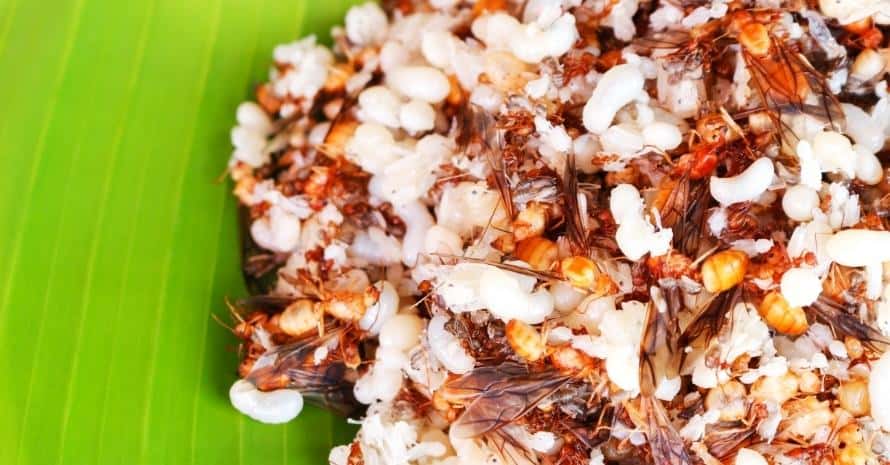
Sometimes newborn ants can develop into virgin queens. They have wings, and after they are fully grown, these queens fly off to start new colonies with the males from different populations.
Only the queen decides when virgin queens can be born, usually, they develop only when the main colony is powerful enough. How do ants breed? When the virgin queen mates with a male, it loses her wings and starts to lay thousands of eggs to begin her own colony.
How fast do ants reproduce?
Establishing a healthy and big colony of more than a thousand ants takes around 6 to 12 months. It is largely affected by the weather conditions, ant species, and the environment. Ants can build huge ant hills that differ in sizes from several centimeters to two meters.
Ant colonies are tended to by workers, who make up more than 90% of the population. If there are a lot of them, it means that the colony has enough food and is protected from natural predators, who can try to ruin the anthill.
What is the lifespan of an ant?
Once again, the lifespan of an ant depends on the species of the creature. Usually, they have pretty short lives ranging from 1 to 6 months. Moreover, the lifespan of an ant is determined by the cast it belongs to.
The common workers live for several months when queens can thrive for decades if the conditions are right. Male ants though always have short lives because their main function is only to reproduce.
After they fulfill their mission, they can survive for some days or weeks, and then they die in isolation.
FAQ
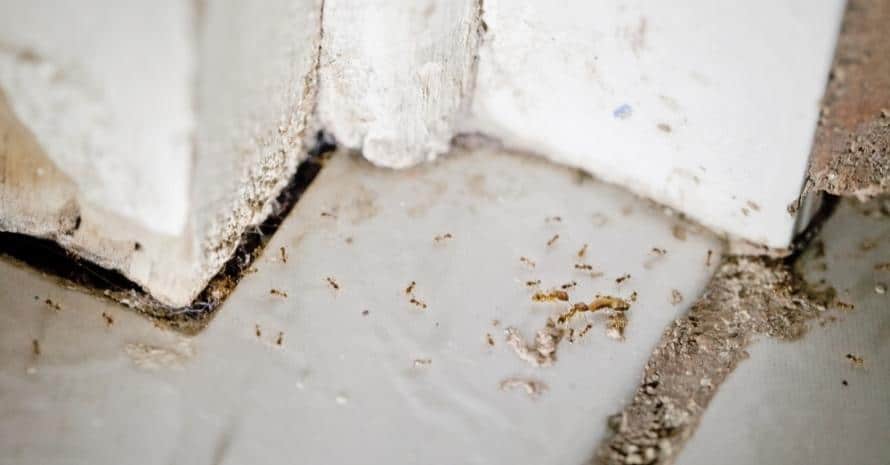
How often do ants reproduce?
Ant reproduction is controlled by a queen of the colony, as she allows the virgin females to appear and go on to create new colonies. It can be once a month or once a year. At the same time, thr queen constantly lays new eggs.
Why can’t worker ants reproduce?
Worker ants are females that have reduced ovaries and hormonal systems, their reproduction is determined by the queen of the colony, and if there is not enough working power, she will not allow workers to develop fully.
Why do ants die after mating?
Not all ants die after mating. Usually, the queen survives to build a new colony, and a male ant indeed goes to survive for several days and then dies because it is left without its primary function – reproduction.
How do house ants reproduce?
House ants have the same reproduction cycle as regular ants, the main difference is that they can feed on the wood of your building, and the colony usually lives inside the walls or under the floorboards of the house.
Ants and Their Little Mysteries
How are ants born? What happens to them during their life? Now you know the fascinating details of the ant reproduction cycle, and I am sure you will find a way to implement it into your research.
Ants and their micro world is something worth exploring, and each time you can find out more interesting facts about them.
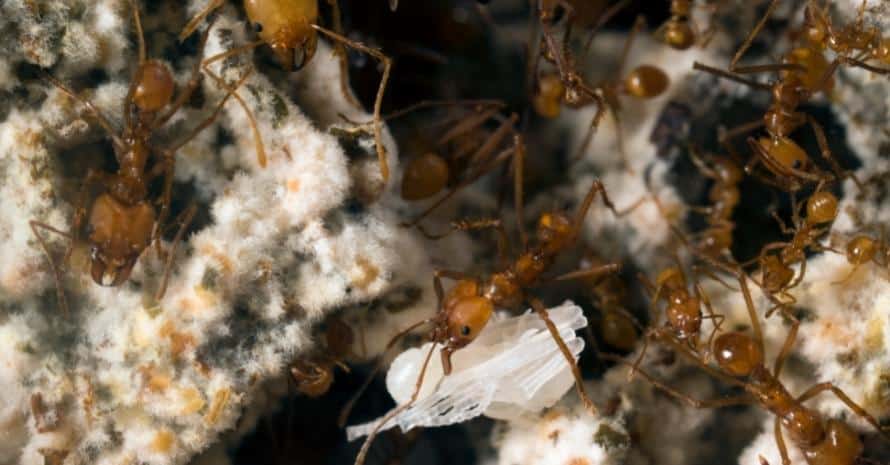
What do you think is the most interesting part of ant reproduction? What other insects would you like to know more about? Please, share your opinion in the comments below.
Also read:
References
- Ant Reproductive Strategies(Jiirgen HEINZE and Kazuki TSUJI l)
eebweb.arizona.edu/faculty/dornhaus/courses/read_ECOL597S/HeinzeTsuji.pdf - Stanford scientist uncovers the reproductive workings of a harvester ant dynasty(Stanford Report BY BJORN CAREY)
https://news.stanford.edu/news/2013/february/gordon-queen-ants-021113.html - The Reproductive System of the Army-Ant Queen , Eciton ( Eciton ) Part 1 . General Anatomy ‘ BY(H. R. Hagan)
https://www.semanticscholar.org/paper/The-Reproductive-System-of-the-Army-Ant-Queen-%2C-(-)-Hagan/ddb31dd75d41ecae6e41db7b1e0ac4d2e029d6f9

